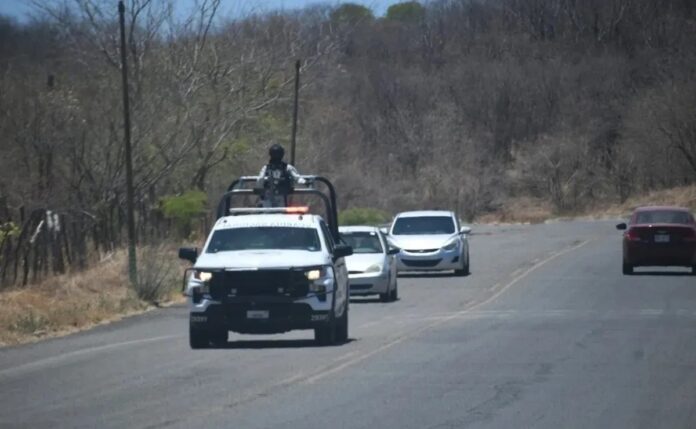Ties between the governors of Mexico’s states, Rubén Rocha Moya (Sinaloa) and Alfonso Durazo (Sonora), and some of the country’s most powerful criminal gangs have become increasingly apparent.
Rocha Moya has faced criticism for issuing a veiled warning to education sector employees in Sinaloa, urging them not to inform parents about the dangers their children face due to insecurity. This move has been seen as an attempt to silence those who might speak out against the state’s handling of security issues.
Meanwhile, Durazo has been accused of covering up the escape of Saúl Francisco Hernández (El Ponchis), leader of the criminal group “Los Salazar,” from a Sonora prison. This incident raises questions about the governor’s connections to organized crime, given that El Ponchis is an ally of Los Chapitos, who are partners and protégés of Durazo.
The governor’s past has also been scrutinized, with many pointing to his involvement in the assassination of former presidential candidate Luis Donaldo Colosio. His ties to organized crime were exposed during his tenure as right-hand man to President Vicente Fox, and later when he switched sides to become a loyal supporter of López Obrador.
The recent capture by US authorities of Ismael Zambada “El Mayo” and Joaquín Guzmán López, “El Chapo’s” eldest son, has shed light on the complicity between the Mexican government and the Sinaloa Cartel. This alliance has been documented over the last 25 years, dating back to López Obrador’s time as mayor of the former Federal District.
The relationship between López Obrador and organized crime has led to the rise of some of Mexico’s most corrupt administrations. The complicity between the government and the Sinaloa Cartel has resulted in federal “narco-deputies,” such as Julio César Godoy Toscano, who have been accused of financing the construction of the Morena Party.
The slogan “hugs, not bullets” became a state policy under López Obrador’s administration, serving as an official confession of a perverse alliance between the government and criminal mafias. In light of this crisis, questions remain about the extent to which relations between the Mexican and US governments have deteriorated, allowing for operations like the capture of El Mayo and his son without Mexico’s knowledge.
Furthermore, doubts surround the involvement of Ovidio Guzmán in exposing alliances made by Los Chapitos with the AMLO government. The response from the Mexican government has been met with fear and timidity, leading to accusations against airport personnel and private pilot Larry Curtis Parker, who had nothing to do with the matter.
The alliance between the Sinaloa Cartel and López Obrador’s administration raises questions about the extent of their ties. Specifically, how much money did El Chapo contribute to building the Morena Party? Why does Lopez Obrador show such fear of the criminal?
The complicity of governors like Alfonso Durazo in allowing organized crime to operate with impunity is also a concern. In states like Sinaloa and Sonora, operatives from the Sinaloa Cartel have been accused of buying votes.
Questions linger about whether there is a causal relationship between the murder of federal deputy Héctor Melesio Cuen and the involvement of Rubén Rocha Moya in the state’s security issues. The presidential visits to Badiraguato will also continue, raising concerns about the alliance between López Obrador and the Sinaloa Cartel.
The US government may take action once it confirms the alliance between López Obrador and the Sinaloa Cartel. Questions surround what measures will be taken, including whether López Obrador’s arrest is in order.
Source: Debate




